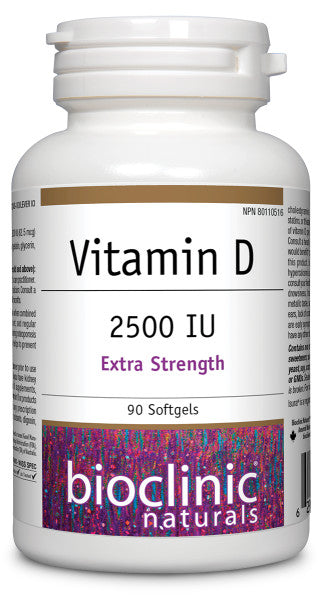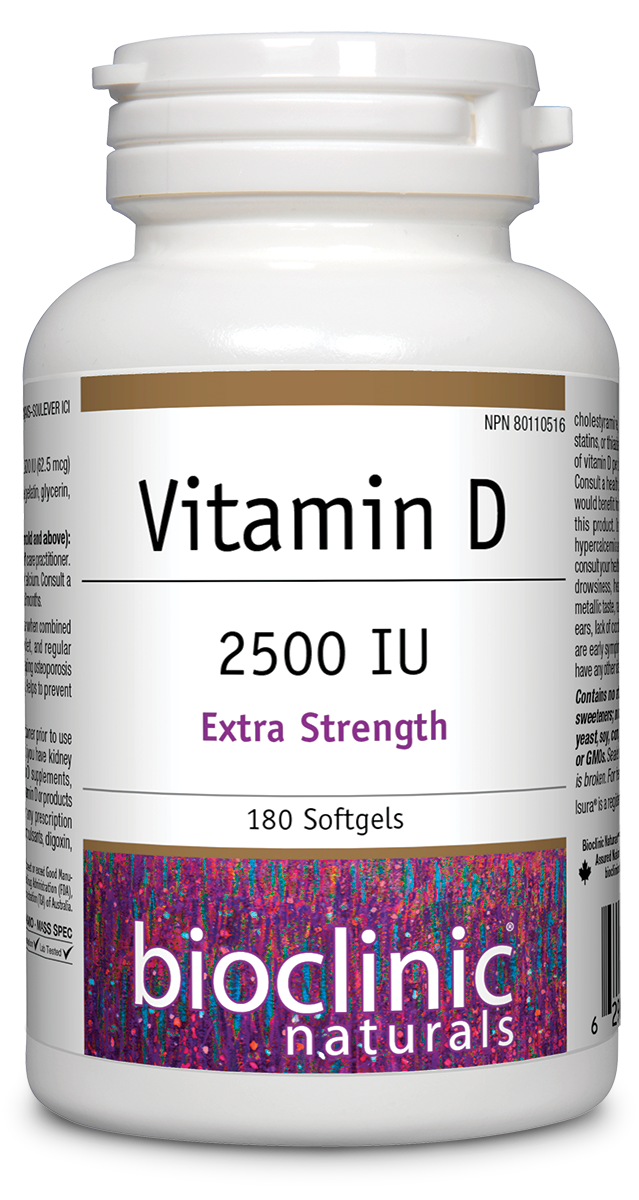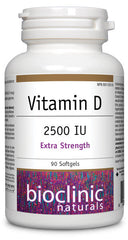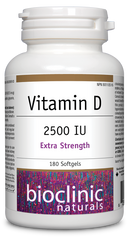





Vitamin D3 · 2500 IU
- 9.99$
0.00$- 9.99$
- Unit price
- per
Description
x- Vitamin D3 (cholecalciferol) is probably more effective at restoring blood levels than the D2 form (ergocalciferol).
- Cholecalciferol has also been shown to increase the proportion of the active form of vitamin D relative to ergocalciferol.
- 2,500 IU of vitamin D per capsule allows for easy daily dosing
- Easy-to-swallow, highly bioavailable capsule
- In an organic flaxseed oil base for better intestinal absorption
Vitamin D is a hormone widely recognized as essential for many body systems and physiological processes. It is also perhaps one of the most common nutritional deficiencies worldwide, with insufficient or deficient levels in nearly 40% of Canadians. Vitamin D is essential for the proper functioning of the immune system and may reduce the risk and/or severity of infections, particularly those of the respiratory tract, and particularly in individuals prone to infections. Many recent studies have linked lower levels of this vitamin to an increased risk of cardiovascular diseases, including hypertension, peripheral vascular disease, and coronary artery disease.
Vitamin D is needed to help absorb dietary calcium and is also important for bone health and muscle strength. Vitamin D has been linked to overall fitness and performance, with lower levels linked to frailty, particularly in older adults. Supplementation at clinically relevant doses has been associated with a well-established reduction in osteoporotic fractures. Given that virtually every tissue in the body possesses a vitamin D receptor, its importance is difficult to overestimate. Many practitioners recommend supplementation to achieve blood levels of 50–80 nmol/L of 25-OH-vitamin D. This level often requires doses of 1,000–2,000 IU per day, and higher for individuals with common genetic variants affecting vitamin D metabolism.
Produits recommandés
Produits récemment consultés
- Choosing a selection results in a full page refresh.




